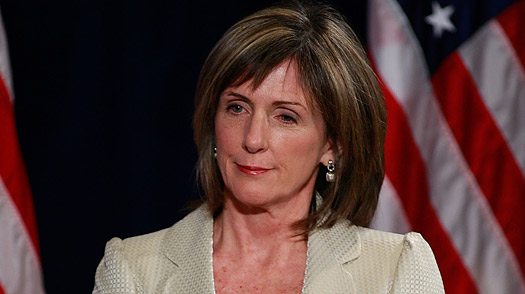
As Environmental Protection Agency (EPA) head from 1993 to 2001, Carol Browner was perhaps "the greatest administrator [the] EPA has ever had," according to Bill Clinton's former chief of staff (and Barack Obama's current transition co-manager) John Podesta. She brings to the role of energy "czarina" a hefty amount of experience in environmental policy-making and consulting. What appears to be causing more speculation regarding her appointment is what exactly her newly created position, officially titled Energy Coordinator, will entail. "Carol understands that our efforts to create jobs, achieve energy security and combat climate change demand integration among different agencies, cooperation between federal, state and local governments and partnership with the private sector," President-elect Obama said at a press conference to announce her nomination. Browner, herself a member of Obama's transition board, mentioned earlier this month that the new position would not change the duties of the Secretaries of Energy and Interior or the Environmental Protection Agency administrator. Her role seems to be that of an overseer, promoting smooth cooperation among the different energy and climate entities.
(See TIME's pictures of the week)
Fast Facts
• Born in Miami in 1955 to two professor parents, Browner grew up hiking in Florida's Everglades and credits that experience with helping her develop a close connection to the natural world.
• Received a B.A. in English and a law degree from the University of Florida in Gainesville.
• She is married to Thomas Downey, a former Democratic congressman from New York; she has one son from a previous marriage. Downey is chairman of a lobbying firm with dozens of clients, which until Dec. 12 included several with interests in energy policy, according to the company COO.
• She was named "Mother of the Year" in April 1997 by the National Mother's Day Committee for her dedication to providing "children with a safer, healthier world." She was also named Glamour magazine's Woman of the Year in 1998.
• Out of college, Browner became an aide in the Florida house of representatives, but left for Washington D.C. a few years later to work for Citizen Action, a grassroots organization that lobbies for a variety of issues, including the environment.
• From 1989 to 1991 she served as Senator Al Gore's senior legislative aide before heading up the Department of Environmental Regulation in Florida. Her greatest achievement: settling a lawsuit the government had brought against Florida for environmental damage done to Everglades National Park and launching the largest ecological restoration project ever attempted in the U.S., to purify and restore the natural flow of water to the Everglades.
• After being appointed EPA administrator in 1993, she put forward a plan to improve the agency's decision making, conserve money and "restore [its] credibility."
• In 1996 Browner led a campaign to have Congress reauthorize the Safe Drinking Water Act and spearheaded the Food Quality Protection Act, which modernized standards that govern pesticide use, one of the first environmental laws to specifically protect children's health.
• Currently is a principal of former Secretary of State Madeleine Albright's global strategy firm, the Albright Group, working in the areas of environmental protection, climate change and energy conservation and security.
Quotes by Browner:
• On EPA critics in the business community: "I've found business leaders don't oppose strong environmental programs. What drives them crazy is a lack of certainty. We can change that." (New York Times, Dec. 17, 1992)
• On her goals as EPA administrator: "I want my son to be able to grow up and enjoy the natural wonders of the United States in the same way that I have." (At her swearing-in ceremony, January 1993)
• On her years working with President Clinton, Vice President Gore and a Republican Congress: "I think one of the most difficult moments for the agency was when the Republican leadership in Congress literally shut us down, wouldn't give us our funding, tried to limit our ability to enforce the law, you know, not once, not twice, but I think 17 times. Those were some difficult days, not just for EPA, but I think for the entire country. And thankfully, we had a Vice President who said no, who was prepared to veto bills." (NPR, Dec. 22, 2000)
Quotes About Browner:
• "Having been on the opposite side of the table from her on the Everglades issue, I can tell you she is a formidable opponent." — Andy Rackley, then vice president and general manager of the Florida Sugar Cane League, the industry's principal state trade group. (New York Times, Dec. 17, 1992)
• "She wasn't at all sympathetic to complaints about civil rights abuses. We were treated like Negroes, to use a polite term. We were put in our place." — Marsha Coleman-Adebayo, a former EPA employee whose complaints of a "racially toxic" environment there led to the signing of the Notification and Federal Employee Anti-Discrimination and Retaliation Act of 2001. (TIME, Feb. 23, 2001)
• "Carol Browner's appointment as a 'climate czar' should signal to the world that the U.S. is taking a new direction on this issue." — Kathleen Rogers, environmental attorney and president of the Earth Day Network, in a statement on Dec. 15, 2008.
See the April 28, 2008 cover story "How to Win the War on Global Warming."